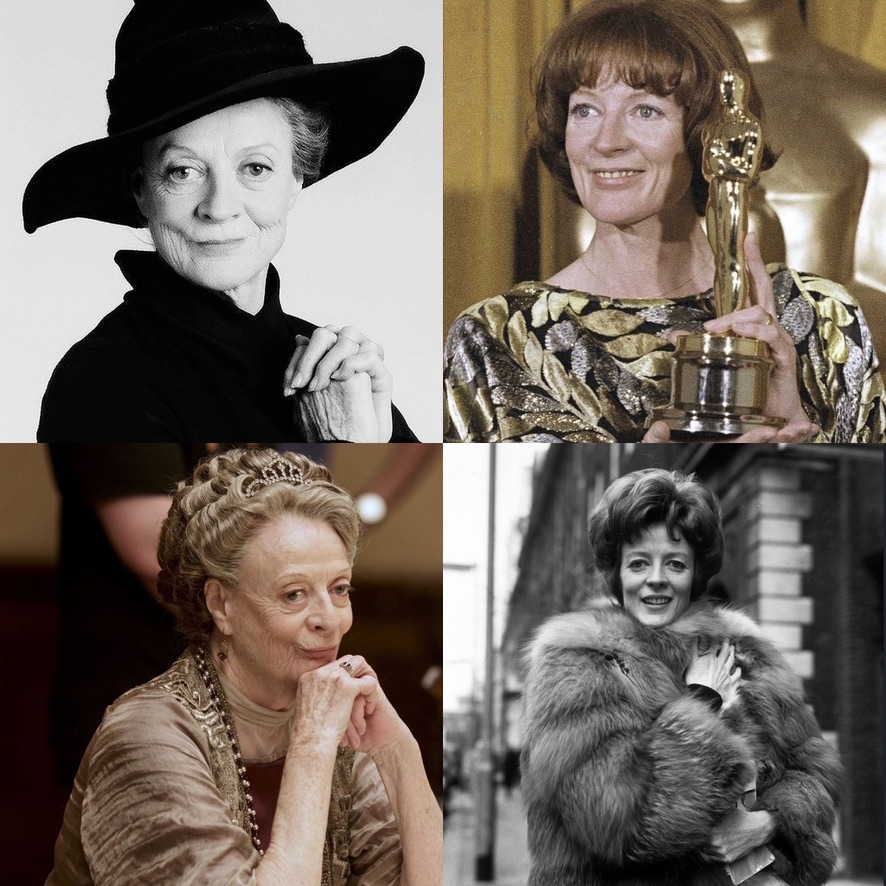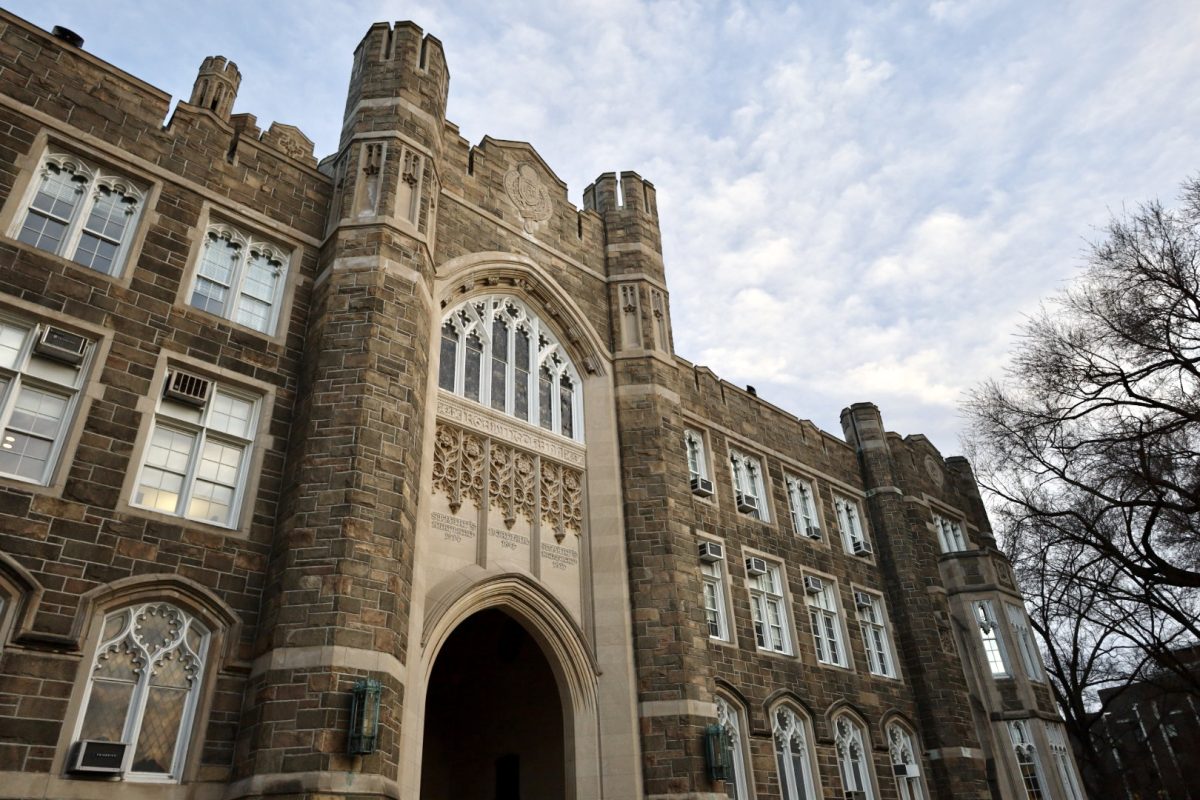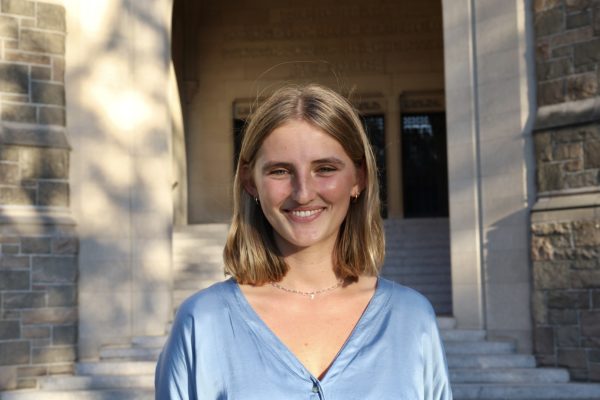Maggie Smith passed away on Sept. 27 in London at the age of 89. Revered for her unfailing wit and sharp skills as an actress, she was also knighted as a dame by Queen Elizabeth II in 1990. As her fans and colleagues alike pay tribute to her, I welcome you to revisit her career.
For many of us, Smith represents a cozy reminder of our childhood, a pillar of an institution we dreamed we could be a part of, flying on brooms and waving wands. As Professor Minerva McGonagall in the “Harry Potter” film series, Smith served as a formidable authority figure with a soft side for her students. She was one of many British film elites in the “Potter” series, a name in the credits that likely drew in audience members that had never even picked up one of the books. The younger actors in the series joined a cast of British acting royalty such as herself: Kenneth Branaugh, Emma Thompson and Michael Gambdon. Her character serves as a role model for the main trio, though never favoring them over other students. The student and teacher bond between Harry and McGonagall becomes incredibly strong throughout the seven novels. Harry often stands up to defend her honor, and she makes sacrifices that represent the trust she has developed in the young man she watched grow up. It is hard to imagine anyone but Smith playing a character both so respected and so feared.
Though later in her career, she played characters similar to McGonagall — straight-backed, tight-lipped and unwavering — she won Academy Awards for her roles in “The Prime of Miss Jean Brodie” in 1969 and “California Suite” in 1978. She also won three Emmys for her role as Violet Crawley in “Downton Abbey,” a role that quickly became a fan favorite.
Smith’s passing brought on droves of tributes from fans to the most powerful figure in the United Kingdom. Theaters across the West End of London dimmed their lights in her honor, fans took to X to pay their respects and King Charles III released a statement on behalf of the British people: “As the curtain comes down on a national treasure, we can join all those around the world in remembering with fondness admiration and affection [for] her many great performances and her warmth and wit that shone through both on stage and off.”
Daniel Radcliffe, whom she first met in a theater production of “David Copperfield” and later recommended for the role of Harry Potter, had similarly loving words: “She was a fierce intellect, a gloriously sharp tongue, could intimidate and charm in the same instant and was, as everyone will tell you, extremely funny. I will always consider myself amazingly lucky to have been able to work with her, and to spend time around her on set. The word legend is overused but if it applies to anyone in our industry then it applies to her.”
Smith is survived by her two children and five grandchildren, but her husband, playwright Alan Beverley Cross, died in 1998. Her legacy and contributions also extend past the screen. Over the past few decades, Smith was involved in many charity efforts, such as the rebuilding of the Court Theater that was destroyed in the 2011 New Zealand earthquake, and fundraising for Glaucoma, U.K.
In an interview with the New York Times in 1979 titled “Maggie Smith Finds the She on Stage is Easier to Know Than One at Home,” Smith discussed the separation between her work and personal life and dealing with fame and success. She described the joy of being onstage as an escape from one’s own worries, the time on stage is easier than the rest of one’s existence: “At least for those two-and-a-half hours you can be quite sure who you are. The rest of the time I find very confusing. I’m always very relieved to be somebody else, because I’m not sure at all who I am or what indeed my personality is. I feel like a person who doesn’t exist until I’m somebody else.”
Decades later, still riding on a massively successful career, Smith was asked if her first days on movie sets were still scary to her, even after so much experience. She replied candidly, “All days are scary,” forever endearing herself to her audiences.








































































































































































































